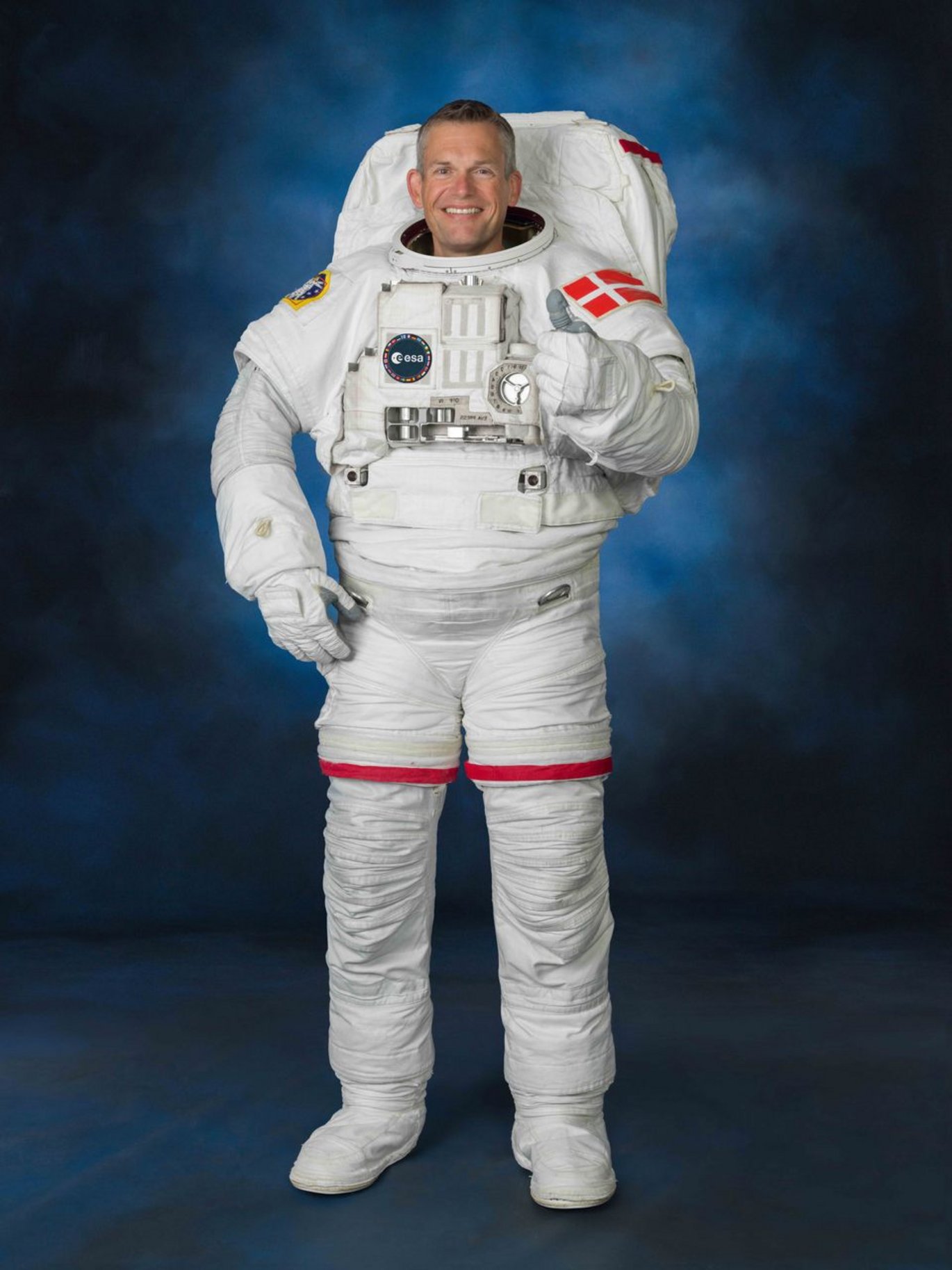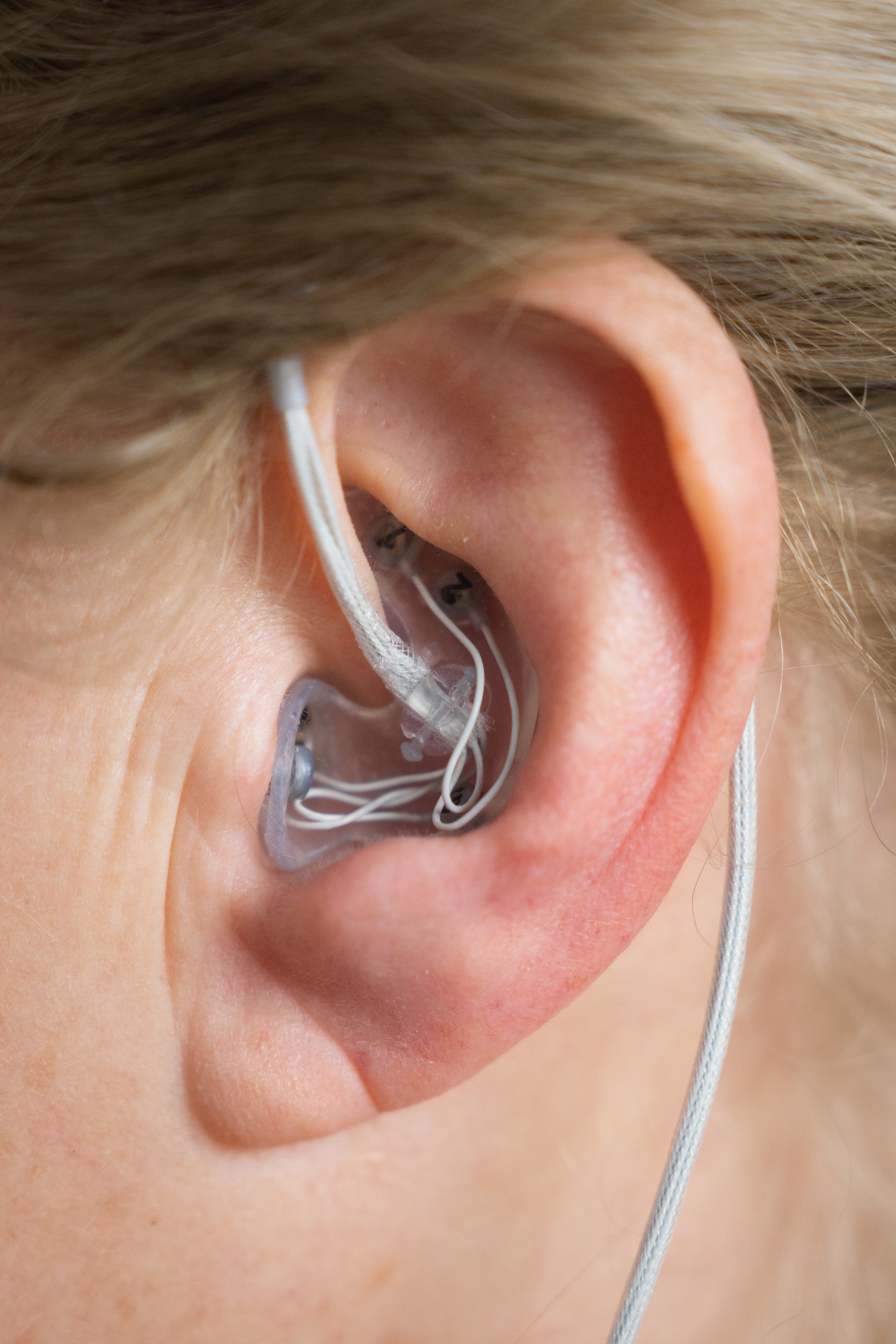Danish earpiece will measure Andreas Mogensen’s sleep in space
Today, a historic space mission with Andreas Mogensen onboard is launched from NASA's Kennedy Space Center in Florida. One of the things he has with him is a tiny earplug that will measure his sleep while onboard the International Space Station (ISS).


It is a great day for space research, a great day Andreas Mogensen, and a great day for a research group at the Department of Electrical and Computer Engineering at Aarhus University.
Not just because this is the first time in space history that NASA has appointed a non-American astronaut to pilot a mission. But also because it is a rare event, that Aarhus University has a research experiment onboard the ISS, where Andreas Mogensen will be staying for the next six months.
The experiment includes unique access to Andreas Mogensen's brain. He will sleep with a wireless computer in his ear for the entire duration of the mission. The earpiece has a discreet and comfortable design, and closely resembles a comfortable earplug. The earpiece can send data back to Earth, where researchers from Aarhus University's Centre for Ear-EEG will be able to monitor the astronaut's sleep patterns from day to day.
"This launch marks a high point after several years of intensive work developing the ear-EEG technology. It’s also the beginning of a new adventure where we can begin investigating how life in space, a life without gravity, affects our sleep. This knowledge is important for future space missions and, more generally, for gaining a deeper understanding of sleep and the importance of sleep for our health and well-being," says Professor Preben Kidmose, Department of Electrical and Computer Engineering, Aarhus University.
The European Space Agency (ESA) has selected a total of ten Danish research projects for the ongoing Huginn mission, one of which is the sleep monitoring experiment from Aarhus University.
Click here to read more about Sleep In Orbit
16 sunrises a day messes with your sleep
Scientists are interested in physiological sleep in space because, just as on Earth, sleep is crucial for health, well-being and our cognitive ability. There are many negative consequences related to poor sleep patterns and they can affect the attention, memory, mood, creativity and judgement of even highly trained astronauts.
“Astronauts have trouble sleeping in space and we think one of the contributing reasons for that is the lack of gravity. Light also has an effect on their sleep, and this is where it all gets a bit complicated in space because the ISS orbits the Earth 16 times a day, which means astronauts can experience 16 sunrises and 16 sunsets in just 24 hours. In addition to that, they almost never experience darkness because the lights are always left on for security reasons. This makes it difficult for them to maintain a natural circadian rhythm," says Preben Kidmose.
The professor expects the large amount of data on the astronaut’s sleep will help the team learn more about what happens to electrical activity in the brain when sleeping in space, and how to avoid the negative short- and long-term side effects of poor sleep.
Astronauts aboard the SpaceX Crew-7 Dragon are expected to return to Earth in February 2024.
The research group from Aarhus University will measure Andreas Mogensen's sleep while he is onboard the ISS and when he is back on Earth in order to compare the brain's electrical patterns. Andreas Mogensen will receive a sleep report every day so he can keep track of how he is sleeping.
Contact
Preben Kidmose, Professor, the Department of Electrical and Computer Engineering, Aarhus University
